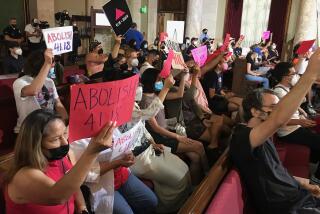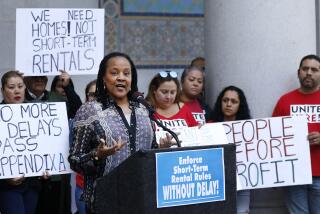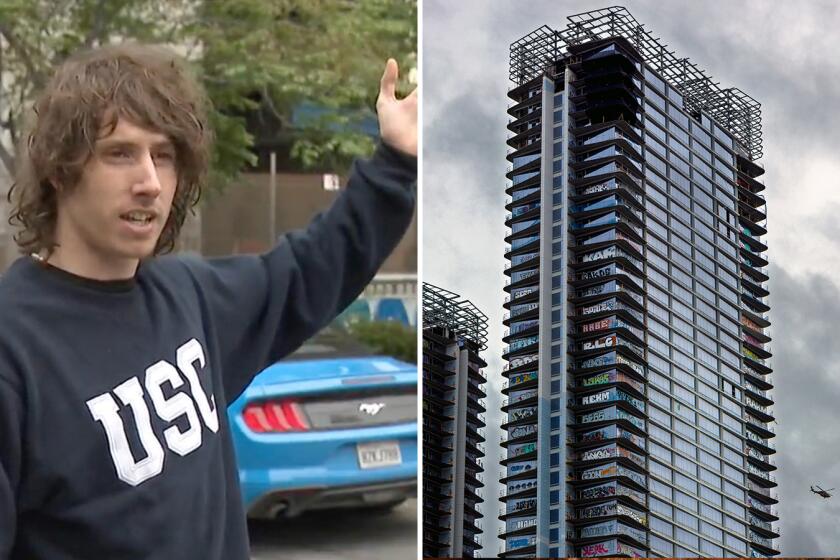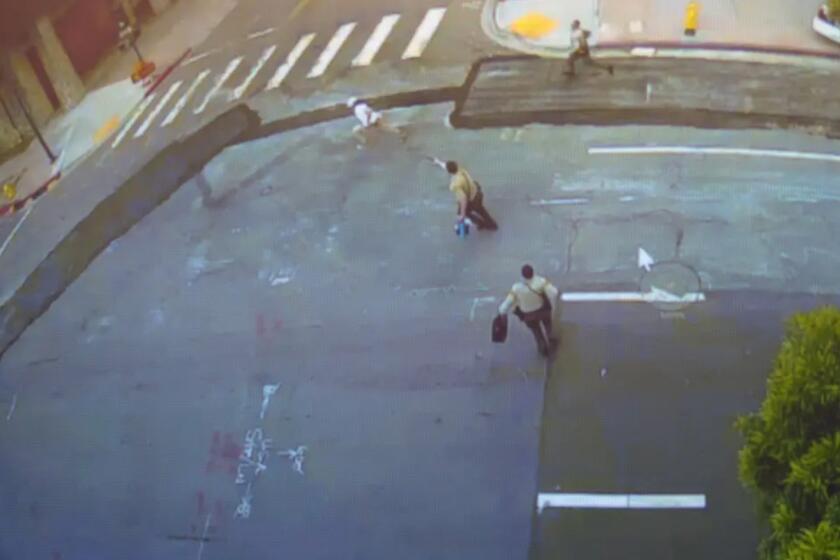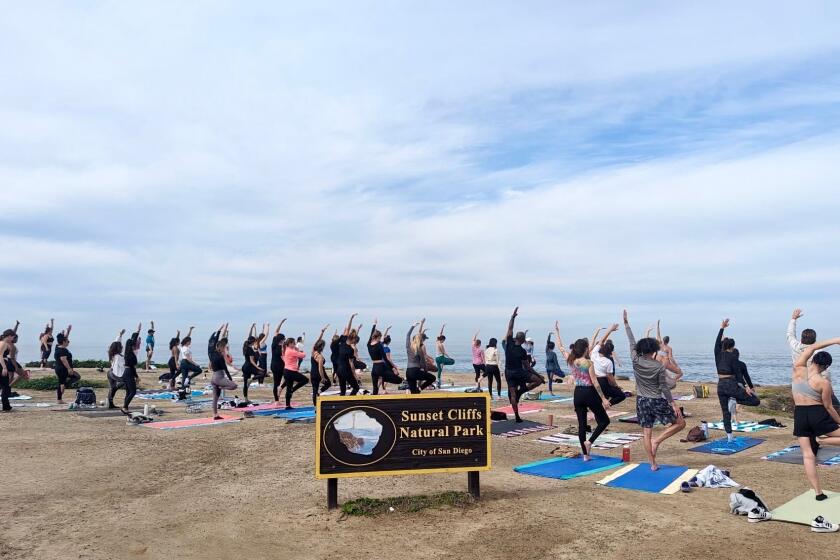City Weighs Inspection of Rentals, Squatter Ban : Cleanup: Proposed ordinance would oust homeless from public areas, cause checks on residential properties. Opponents speak out.
In a two-fisted approach aimed at cleaning up the city’s neighborhoods, the City Council next week will consider one ordinance that would mandate inspections of all residential rental properties in the city and another that would effectively remove the homeless from public areas by banning outdoor camping.
The ordinances represent the city’s response to ongoing pressure from neighborhood residents to step up code enforcement of properties and control the increasing homeless population that has settled primarily in the Civic Center area.
In both cases, city officials can expect challenges to the proposed laws.
Richard J. Lambros, public affairs director for the Apartment Assn. of Orange County, said Thursday that his group will ask for a 45-day delay of the vote on the mandatory rental inspections so that his group can assess the impact and find a workable plan for the city and the owners.
At the Legal Aid Society of Orange County, where a study is underway on similar anti-camping laws recently approved in Fullerton and Orange, attorneys warn that Santa Ana officials could be violating a previous court order that prohibits them from making a concerted effort to drive the homeless out of the city.
City Atty. Edward J. Cooper said, however, that the camping ordinance is not intended to drive away the homeless.
“The intent is not to remove the homeless people but to prohibit them from camping in public areas and public property,” Cooper said. “They will have to find some other place to camp if they are going to camp.”
Under the proposed property residential inspection program, all of the city’s estimated 37,000 residential rental units would be assessed an annual permit fee of $55 per dwelling and would be checked about once every four years to make sure they meet city and state codes.
If violations are found, owners could lose the permits and would not be able to rent the units until repairs are made and reinspection fees have been paid.
Neither the city manager nor the planning and building safety director were available for comment Thursday, but a staff memo to the council stated that inspectors would target code violations that are “a threat to an occupant’s safety; a threat to a building’s structural integrity, including plumbing, heating and electrical systems, and a negative impact on the surrounding neighborhood.”
During the last year, the memo stated, neighborhood residents submitted 4,500 code complaints, and about 75% were rental units. The neighbors, however, usually do not report indoor violations, such as electrical and plumbing problems, illegal wall additions and roach and rat infestation, according to the city staff report.
“If I was an apartment owner, I wouldn’t be happy to be charged for the service,” said Mike Bragdic, president of the French Park Neighborhood Assn. “But I only have to look across the street to the boardinghouse right across from me. There are features that are unsafe. I know of buildings that are open to vermin (and) can’t be heated.”
Sandpointe Neighborhood Assn. chairman Jim Walker said that although his group is still studying the proposal, “we’re very excited.”
“It promises inspection to improve conditions, not to put people out of homes,” he said, adding that slumlords place the lives of their tenants at risk. “Dollars are not going back to improve conditions at tenements that they own.”
Neighborhood groups have long advocated an ordinance that would restrict the number of people who can live in a dwelling because of the belief that overcrowding deteriorates the housing stock and stresses city services.
But ordinances specifically targeting residential overcrowding have been challenged in court--the latest is pending before the 4th District Court of Appeal.
Attorney Richard L. Spix, who filed the lawsuits against the housing occupancy limits, said that while he supports routine inspections, the law could be enforced subjectively and could result in higher rents for tenants.
He suggested that the city concentrate on residences owned by notorious landlords. “We know where they are, so why not focus resources on that?” Spix said.
Lambros said that a mayor’s task force that first proposed the residential inspection program called for a pilot program involving 3,000 units. He said the apartment association could not support the plan in its present form.
In a letter delivered Thursday to the city planning director, Lambros said that while his group and the city often share concerns about deteriorated housing, both sides have not been able to work together in the past.
Unless they forge a partnership, Lambros’ letter stated, “we will be once again forced to waste valuable time and resources fighting each other” over how to implement and enforce the program.
Meanwhile, on the homeless issue, Legal Aid attorneys Robert Cohen and Harry Simon said they also were preparing to challenge the city’s proposed ordinance that would ban outdoor camping and the storage of personal belongings on public property.
The city attorney said the law is similar to one enforced by Santa Barbara that survived a 1989 court challenge. He also pointed to a U.S. Supreme Court decision that upheld the National Park Service’s right to ban camping in Lafayette Park in Washington.
A separate law banning camping in city parks already exists, Cooper added.
But Simon argued that the court decision on the national park ban was based on the assumption that campers had other alternatives available to them. A citywide camping ban would leave the homeless no choice but to leave the city, he added.
“Assume that it was adopted by the state of California,” Simon said. “Would all the homeless have to leave California? It’s a constitutional violation of the right of freedom of movement.”
Cohen added: “People cannot be banished from cities just because they are homeless. (The proposed law) makes being homeless a crime.”
More to Read
Start your day right
Sign up for Essential California for news, features and recommendations from the L.A. Times and beyond in your inbox six days a week.
You may occasionally receive promotional content from the Los Angeles Times.

